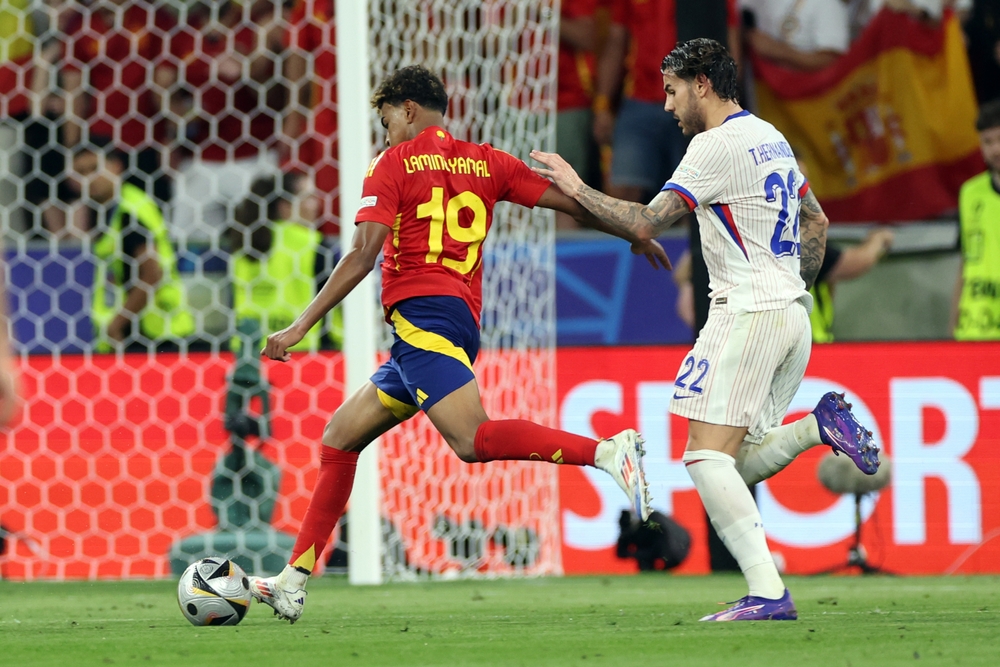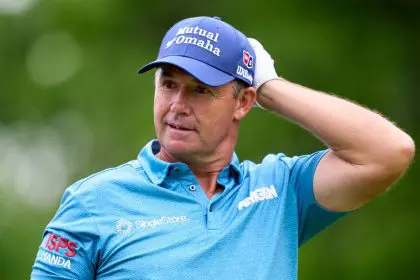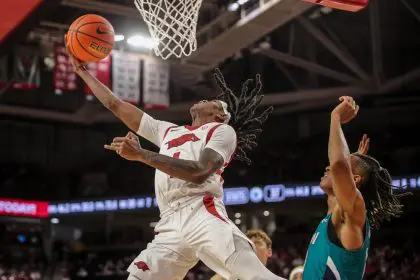Sometimes greatness announces itself with perfect timing, and Lamine Yamal just delivered the most emphatic statement of his young career. The 17-year-old Barcelona sensation scored twice in Spain’s thrilling 5-4 victory over France in the UEFA Nations League semifinal, sending a clear message to anyone still questioning whether he deserves football’s most prestigious individual award.
This wasn’t just another good performance from a promising teenager—this was a coming-of-age moment on one of football’s biggest stages, against one of the world’s elite teams, with Ballon d’Or implications hanging over every touch. When the pressure was highest and the spotlight brightest, Yamal delivered exactly the kind of performance that separates future legends from merely talented youngsters.
The tactical setup couldn’t have been more perfect for football’s narrative writers. Here was Yamal, the Spanish prodigy who conquered domestic football with Barcelona, going head-to-head with Ousmane Dembélé, the French winger who just helped PSG claim their first Champions League title. Two players at completely different stages of their careers, both with legitimate claims to individual glory, facing off when it mattered most.
The performance that changed everything
What made Yamal‘s display so remarkable wasn’t just the two goals, though both were expertly taken finishes that showcased his clinical edge in front of goal. It was the complete performance—the way he influenced the game from the opening whistle, creating the opener for Nico Williams before adding his own decisive contributions after the break.
While Dembélé struggled to make any meaningful impact despite his recent Champions League heroics, Yamal controlled the tempo and direction of Spain’s attacking play. The contrast was stark and telling: one player riding the wave of recent team success, the other creating his own moments of individual brilliance when his country needed them most.
Spain coach Luis de la Fuente didn’t hold back in his assessment after the match, declaring that Yamal had made the definitive statement in his Ballon d’Or candidacy. The teenage forward was named MVP of the match, capping off a performance that left even France’s world-class defenders struggling to contain his movement and creativity.
Maturity beyond his years in crucial moments
What separates elite players from good ones is their ability to perform when the stakes are highest, and Yamal demonstrated exactly that quality against France. This wasn’t a comfortable victory where he could showcase his skills without pressure—Spain had to withstand a fierce French comeback that saw them score three goals in the final stages to make it a one-goal game.
Throughout France’s desperate late surge, Yamal maintained his composure and continued making the right decisions with the ball. His football intelligence and tactical awareness looked like that of a player with a decade of international experience, not someone who only recently became eligible to drive a car.
The way he handled the pre-match buildup also demonstrated remarkable maturity. Rather than getting caught up in the Ballon d’Or hype, he acknowledged the individual battle narrative while maintaining focus on team objectives. That kind of perspective is rare in players twice his age, let alone teenagers experiencing their first taste of superstardom.
The Dembélé comparison that defined the night
The tactical matchup between Yamal and Dembélé provided the perfect framework for evaluating their respective Ballon d’Or credentials. While Dembélé entered the match fresh off PSG’s Champions League triumph, where he played a crucial role in their historic victory, he was unable to translate that form to the international stage when it mattered most.
Dembélé’s substitution after Spain’s fifth goal told the complete story of the evening. Despite his recent club success and the expectation that he would rise to the occasion in this high-profile matchup, he became increasingly peripheral as Yamal took control of the game’s most important moments.
The contrast highlighted different approaches to achieving greatness: Dembélé’s path through team success and tactical systems versus Yamal’s individual brilliance that elevates everyone around him. Both have merit, but only one player seized the moment when the world was watching.
Spanish football federation embraces the moment
The immediate reaction from Spanish football officials demonstrated how significant this performance was perceived to be in Yamal’s individual award candidacy. The Spanish Football Federation president wasn’t subtle in his assessment, suggesting that the teenager’s display had proven his worthiness for the Ballon d’Or beyond any reasonable doubt.
These weren’t just polite comments from supportive officials—they represented a calculated effort to build momentum for Yamal’s candidacy during a crucial period in the voting timeline. The timing of such statements, combined with the high-profile nature of the match, creates exactly the kind of narrative that influences award voters.
Nico Williams joined the chorus of support, emphasizing how much he hopes to see his teammate recognized with football’s ultimate individual honor. This grassroots support from fellow professionals adds another layer of credibility to Yamal’s growing campaign.
The broader implications for Spanish football
Yamal’s masterclass against France represents more than just individual achievement—it signals Spain’s return to the summit of international football. After winning the European Championships last summer and now reaching another major tournament final, La Roja has established itself as the sport’s most consistent national team.
Having a 17-year-old as the driving force behind this success makes Spain’s position even more remarkable. While other nations rely on aging superstars or struggle to develop new talent, Spain has discovered a generational player who could define international football for the next decade.
The combination of individual brilliance and team success creates the perfect platform for sustained excellence. Yamal isn’t just contributing to Spain’s current success—he’s becoming the foundation upon which future achievements will be built.
Setting up the perfect final stage
Sunday’s Nations League final against Portugal provides Yamal with another opportunity to strengthen his Ballon d’Or case on football’s biggest stages. Facing Cristiano Ronaldo’s Portugal adds another layer of narrative significance, as the teenager has the chance to outshine one of the sport’s greatest ever players in a winner-takes-all scenario.
The tactical challenge will be different against Portugal, but Yamal’s performance against France proved he can adapt his game to whatever the situation requires. Whether Spain needs him to create for others or finish chances himself, he’s demonstrated the versatility that elite players require.
A Nations League title would provide the perfect capstone to what’s already been an extraordinary season for both Yamal individually and Spain collectively. Combined with his domestic success at Barcelona, such an achievement would create an irresistible case for Ballon d’Or recognition.
The generational talent debate is over
What Thursday night’s performance ultimately proved is that the debate about Yamal’s place among football’s elite is finished. This isn’t about potential anymore or what he might become in the future—this is about recognizing present-day excellence that demands immediate acknowledgment.
At 17 years old, he’s already performing at a level that most players never reach in their entire careers. The fact that he’s doing it consistently, in the biggest matches, against the world’s best opponents, removes any doubt about his readiness for football’s highest individual honors.
The Ballon d’Or conversation has fundamentally shifted after this performance. What was once seen as a future possibility has become a present-day inevitability, assuming voters recognize greatness regardless of age. Yamal has made his statement—now it’s up to the football world to respond appropriately.
















